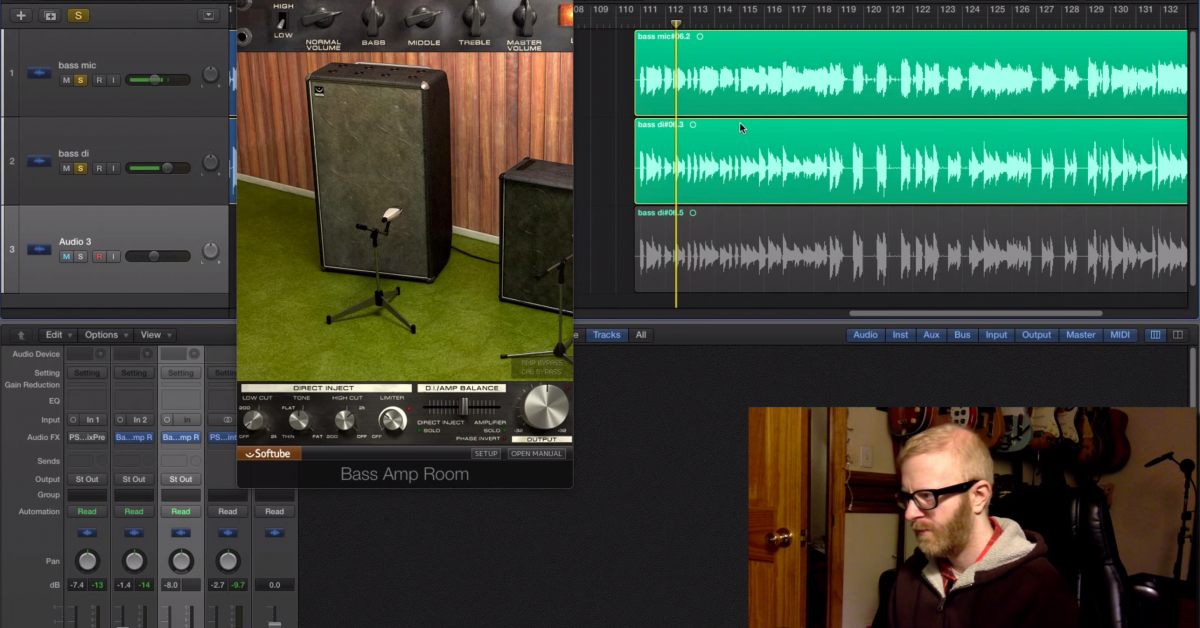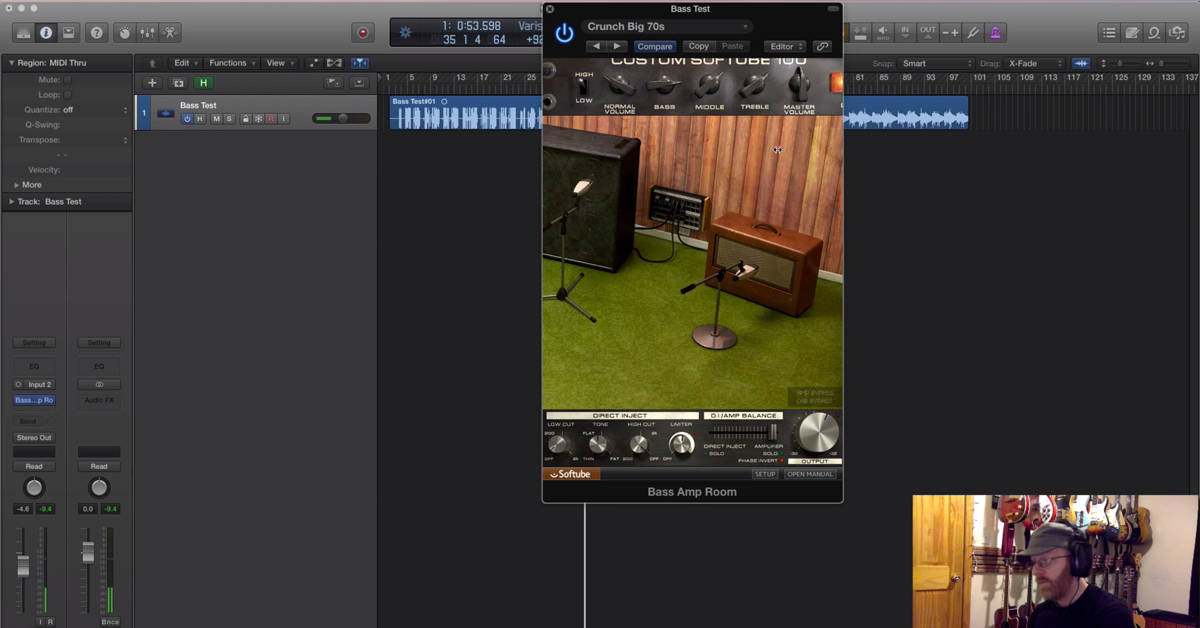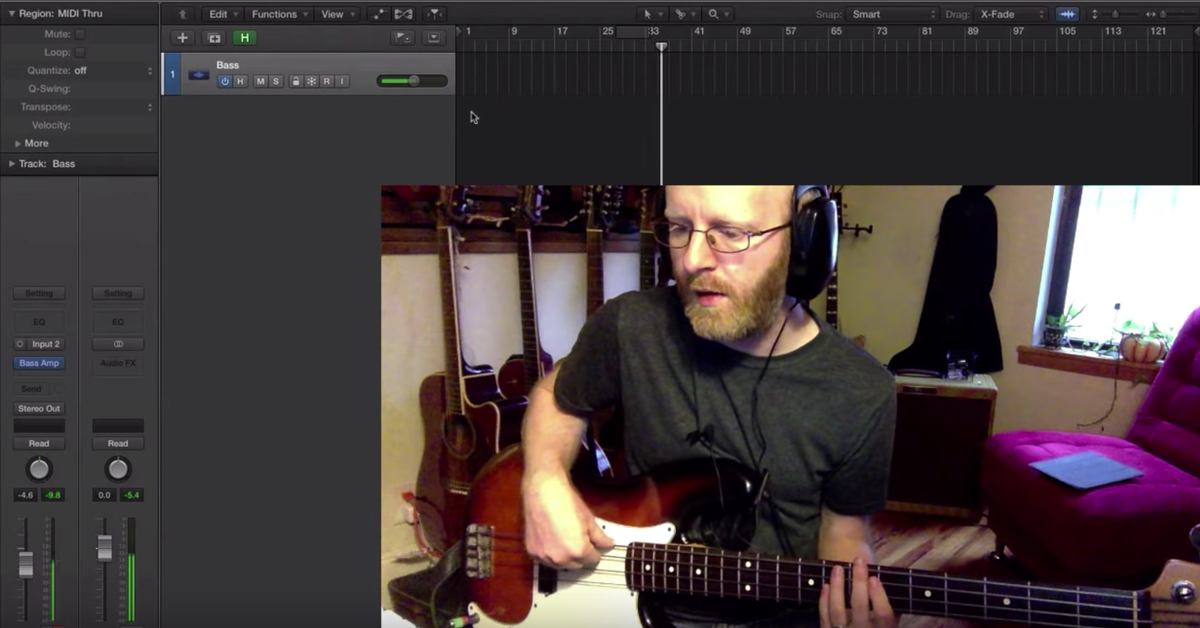Tips for Getting Better DI Bass Tone with Bass Amp Room and Pedals
Today, I’m going to be showing some tips from a good friend of mine, Chris Venditti from the band, Nation Beat, and he has some great tips about achieving a very interesting bass tone while recording that is really a great for a lot of world music, and also R&B.
He’s going to be using some EBS pedals in this and straight DI into Avid Mbox, and I’m going to be using Softube’s Bass Amp Room, which is my go to amp emulation plug-in for bass these days, which is great, because not only does the amp emulation sound good, but the DI sound it has is really fabulous as well, and you can blend the two of them.
For this, when I plugged Chris in, I let him play along with it, and he pretty much liked the stock settings. That’s one of the nice things about the Bass Amp Room is that pretty much when you pull it up, it’s already usable.
So, we left it pretty much alone, and he plugged his Lakland bass into it with a couple of pedals, and here’s what he has to say.
Chris: Hi, I’m Chris Venditti. Some know me as Crow. I’m a bass player. I play with the band Nation Beat, which is like a Brazilian-American Fusion band. Delsonido, Cumbia, Afro-Carribean band, and I do a lot of R&B Funk stuff and Latin stuff in the greater New York area.
I found myself in a situation where I’m wanting a kind of clean, almost active – I’m playing a passive bass, but this is the Lakland with a very clear sound, and wanting that kind of definition to the notes, but also wanting to keep the kind of vintage warmth, and resonance.
So, I kind of figured out this trick using these compression pedals and a filter pedal, both of which I particularly like. So, basically what I do is I have this compressor – it’s an EBS compressor – set on the multi-band mode, so it’s compressing the lows and the highs independently. It really tightens up my low-end, and it kind of crisps up my high-end at the same time. That gives me a really even sound, but it definitely is bright.
So what I’ve done is I’ve put this EBS compressor that has a “down” setting so that – maybe if I make it more obvious…
[bass plays]
It sweeps from high to low. So, I put the threshold just so it grabs the note if I play it rather hard, but it doesn’t even do it…
[bass plays]
So, what that basically does is it gives me the opportunity to play rather hard and rather loud, and it’ll just eat the high-end a little bit, so that I get that – I can play aggressively, and with a lot of attack, and it still maintains a warm sound.
The filter itself is – even in the open mode, it still kind of takes the high-end off, and gives a certain warmth to the sound, kind of enhances the high-mids.
Alright, so this is completely clean.
[bass guitar]
Alright, and this is with the compressor.
[bass guitar plays]
And then with the filter.
[bass guitar plays]
A really great application of this little setup is certainly for slapping, because I’m not a huge fan of just mid – just doing the contour switch on a bass amp and taking all of the mids out, because I feel like you just end up with this very cold, lifeless sound, and it’s very thin, but you definitely do need to kind of shape the sound when you slap, and you definitely need to compress the sound when you slap.
So, the thing about this is you get that punch, and you get to pretty much maintain the sound of your bass, but it’s going to kind of filter out the nasty stuff. So, I’ll slap a little bit just completely clean, and I’ll play the same thing with the compressor and the filter on.
[bass]
So, definitely a much more natural warm sound that’s closer to what you would get with finger-style, which is kind of – that’s like, the biggest thing when you slap is getting the switch between the two to be really even.





